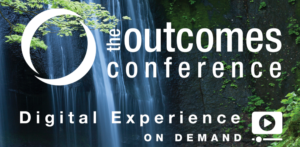
When Will You Give Back? By Emily Nelson
What keeps you from the deciding to give back?
The decision to give sure seems to require jumping through a number of hoops. Personally, I’ve never felt quite confident in my donation strategies, but there are a few things I try to keep an eye on as I give: reminding myself of the biblical reasoning, developing the habit of generosity, and watching the fears inside me.
Effective and sustainable compassion is no doubt a complex topic. If I want to make the greatest difference possible with my efforts (which we should all want, right?), then maybe it’s smartest to hold off on donating very much or entirely until I have a larger and more reliable income. If I give too much away in the infancy stages of my career, I may not be able to make it to this income jump, and therefore not have as much later in life to share. Conceivably, this is a reasonable argument.
See the Biblical Foundation
Tithing isn’t a one-time check the box sort of duty. It’s a frequent and repetitive decision—a lifetime commitment to God in the way that Jacob exhibits (Genesis 28, TGC). Under the Mosaic law, there was a regular tithe to support the priestly work in addition to a charity tithe (Deut. 14:28–29). In the New Testament, Jesus upholds the heart of tithing (Matthew 23:23) and the practice is reaffirmed in Paul’s letters. As Christians, we give to those who have less than we do and stand behind efforts that further God’s kingdom (2 Cor. 8–9). We don’t forego either evangelistic work nor justice work.
When a “poor woman” gives a penny to the offering box, in contrast to the many rich people who put in “large sums” (Mark 12:42), she becomes a foil to the form of comfortable giving. Jesus tells his disciples that she gave more than the others when we know she gave the tiniest fraction in comparison. But what I notice is that she gives herself. She tosses out such a great percentage of what she owns that she’s left bare and vulnerable. Like this woman, I want to put myself into a posture of dependency—which I know I’m in—as a reminder of my spiritual condition. Wealth is a dangerous position to be in.
I often try to change my circumstances (for the sake of giving more, for personal reputation, or for any variety of reasons), but shouldn’t wait to serve Christ. While I’m in the present moment, I can serve him in this capacity (1 Cor. 7:17-24). Waiting until I feel “established” will only delay the practice of loving my neighbor in the not-so-heroic everyday grocery store visit or walk through the park. Dull days are an opportunity, not an excuse.
Form the Habit of Generosity
Sharing my possessions requires emotional strength. Letting go is a healthy practice for the human heart, as well as a means of helping others. I’ve found that the most self-confident person is the one who is happy to sit at the back of the room and watch her coworkers give presentations. She’s not afraid that loss will ruin her identity because she knows that money does not govern her self-image.
Finding the internal capacity to give is a gradual and iterative process. One does not suddenly give away half of her possessions—it’s a practice established over time. Those who’ve spent fifty years in a regular pattern of tithing say that not seeing a percentage of their finances disappear on a regular basis starts to feel strange. I can know I’m progressing when this commitment remains consistent no matter the number of frightening curveballs I’m thrown in life.
The odds are not in my favor that should I scrimp and save for the first decade of my career and just so happen to land a high paying job, that then I’ll start easily dishing out bills to anyone in need. I need to learn to see people first.
Look for My Fear
What is the problem in my life that keeps me from sharing? When I look at this question, I do feel worried about money. Covid hasn’t made much of a dent on my financial stability, but adding up rent, car payments, insurances, utilities, gas, groceries, and loads of other seemingly necessary expenses, I’m left wondering how much margin could be left to donate. And yet, it is there.
And now I ask you: Are you stressed about making ends meet? Do nonprofits seem like money pits with no clarity of difference being made? Do you have a lack of trust for most organizations to use your money effectively? Or perhaps like me, you’ve become too busy trying to be a do-gooder only to find that your pace has kept you from living with care for others. Compassion isn’t just for the convenient moments; it’s meant to squeeze into all of our in-betweens, day by day, as we discover how to give a penny and love that one irritating person who we’re always dodging. What is love worth if it just shows up when we’re happy, healthy, and wealthy?
It is the responsibility of nonprofits, churches, and other organizations to manage their donations well. But for the rest of us, we can have a checklist ready, ensuring that the recipient is justified. Many millennials feel a concern for giving because they’ve seen a lack of results or even worse, mismanagement. But that is not an excuse to avoid donating. It’s a reason to encourage that the work be done better.
Generosity is a long-term goal. Most of us wait and hope for the time in our lives when we can give back. We’re proud of this work, perhaps prouder of that than any other accomplishments. We’re most rewarded by being in one another’s lives, showing and receiving love, knowing and being known.
So why can’t that be now? It might not be much, but it’s something. And when we put in a penny, it might also just cause a chain reaction of compassion.
####
Emily Nelson serves as the Communication & Marketing Administrator at Neema Project, a nonprofit that provides skills-training, counseling, and discipleship to vulnerable young women in rural Kenya. Through storytelling and visual arts, Emily advocates for those who live in extreme poverty with limited access to education, so that they may instead be empowered to make their own life choices, find healing from trauma, and learn from God’s word.

Unlock 57 learning experiences through the Outcomes Conference Digital Experience.
All On-demand and Available for all Christian Leadership Alliance members – July 1-31, 2021.
REGISTER IS STILL OPEN

What is Christian Leadership Alliance?
Christian Leadership Alliance equips and unites leaders to transform the world for Christ. We are the leaders of Christ-centered organizations who are dedicated to faithful stewardship for greater kingdom impact.
Sign up for FREE blog updates.
Upcoming Events
Check back later!



